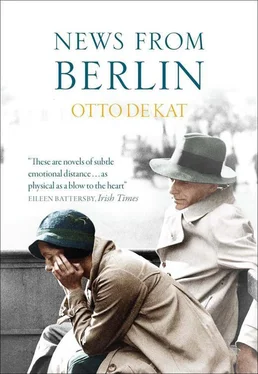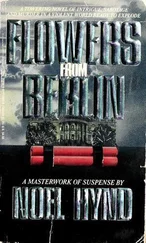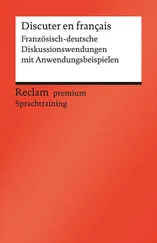The woman regarded him across the table. He saw her eyes for the first time. Only for a second, due to the waiter bringing the coffee and the people squeezing past the back of his chair. Distractions that were not unwelcome. Her eyes were like her voice – challenging. They took him way back, an eternity back, to the ice covering the base of his memory, smooth as glass, and creaking. Treading gingerly on the first ice of the night, over a thinly frozen pond fringed with weeping willows. The girl’s embrace, on the way to school. A fleeting interlude of happiness, forged into a short story years later. No, he did not feel challenged, it was different, nothing to do with pressure or being called to account. Her face and her eyes held him fast, he could not have left even if he had wished to.
Beside him there was laughter, the door kept swinging open and shut, snowy overcoats hung all over to drip. Café Eiger was the hub, the haven for those brave enough to venture out of doors. Soup, coffee, hot chocolate, Schnapps , cake, good-humoured waiters bearing trays. The mood was resolutely festive, no-one dreamed of going home. Oscar pointed to the snow falling outside, and asked whether he might order her something else. Yes, he might. The corner they occupied was near invisible to the staff. He took her newspaper and raised it at an angle, stick and all, to attract a waiter’s attention. She gave him a quizzical look, because she was also holding the newspaper-stick, and because he seemed utterly unabashed by this. As if they were putting out a flag together. Until he realised that he was signalling the waiter with her hand, and quickly let go. The newspaper sank, the flag was furled. Oscar placed the contraption on the table between them, and laughed.
“My apologies for borrowing your hand, the lines of which I’d much rather read than the newspaper, I have to say.” He had never, since Kate, paid court to another woman. Now the words came of themselves: carefree, cheerful, free, and with the hopeful echo of a snowbound village high up in the mountains.
“Do you fancy yourself as a gypsy? Palmistry is quite an art, you know – let alone reading my palm.”
She opened her hand to him. A gesture as though she were shedding her clothes, unafraid of being observed. With utmost care he ran his fingertip along a line across the middle of her palm.
“A life lived to the full, I see. Love, loss, ill health, recovery, and a fresh start,” he said in the voice of a fairground fortuneteller.
She closed her eyes a moment, perhaps the better to be aware of the touch of his finger traversing her hand.
“You are an expert, it seems, man-on-the-terrace. I particularly like that bit about a fresh start,” she said, all alertness now.
“My dear lady-with-binoculars, my name is Oscar Verschuur. May I know yours?”
She hesitated, he could feel it. Say her name and she was traceable, say her name and she was letting herself go, say her name and it would all begin. Wait, lady-with-binoculars, wait, man-on-the-terrace, why not stop now, why not turn around and go back into the snow while you can, nameless still, unknown, unaccountable, untraceable, for your footprints won’t last, the wind will take care of that.
But she did not hesitate for long. Mindful of that fresh start, she told him her name, but not before saying: “Since you know such a lot about me, I expect you know what my name is already.”
“As soon as you tell me I’ll know if I’m right,” Oscar said, in his fortune-teller’s tone, draping his scarf over his head like an old crone. It made her laugh.
“Well, Oscar Verschuur, my name is Lara van Oosten.”
He blinked. “You’re Dutch!” he exclaimed, feigning indignation.
“Yes, afraid so.”
Their confidentiality rose as they lapsed, unremarked by either of them, into the informal manner of address.
“But your German is perfect, whereas you knew straight away that I’m Dutch by my accent.”
Slowly, she nodded.
“Look, here’s the waiter, Oscar. You were waving at him with my hand, remember?”
While the snow fell and fell and the windows steamed up, they withdrew into their shell of concentration, deluging one another with questions about their lives as though pressed for time, as though loss loomed. Layer after layer, one question after another, story after story, in a flood of extraordinary candour, albeit that Oscar, true to his programmed discretion, took care to avoid the very least allusion to what he was doing in Berne. After the coffee came the omelette, after the omelette came the coffee, the tea, the cake, the wine, the fading light. At six it finally stopped snowing, and the proprietor announced that the last train to Hotel Jungfrau was leaving in ten minutes. New arrivals stamped the snow off their boots; seldom had the café been more crowded, seldom more packed with promise.
Oscar settled the bill: “I should have bought a day ticket.”
Lara stood up: “I’m going walking all day tomorrow.”
“In that case, may I come and collect you?”
Again the momentary pause, then agreement and invitation: “Would you?”
Oscar walked her to the station across the road. The platform was already filling up with passengers returning to the hotel. Several people nodded a greeting to Lara. The newspaper kiosk was open; the lights in the shop selling watches were still on. There was not the slightest intimation of the war that was so dangerously close. Oscar did not think of it, neither did Lara. Both were absorbed in the moment of parting, each in a state of weightlessness. The train hummed, men with spades stepped off the tracks, a conductor waved his flag, the driver slammed the door of his engine. Lara raised her eyes, pointing to the bright yellow moon and the starry sky.
“Fine weather tomorrow, Oscar. Forget about being cut off by the snow. We’ll all have to go home.”
Home? Oscar heard the word, but it had no ring to it. Berne, Berlin, London, he had lost his home long since.
Kate let herself into her flat at the quieter end of Barkston Gardens, just off Earls Court Road. She could hear the muffled rumble of traffic on the busy main road, the occasional hoot of a car or a bus, the wail of a fire engine or an ambulance. Kate liked the place. She went through to her balcony and surveyed the communal garden below, to which only the Barkston residents had a key The noise did not bother her at all. The wider world did not really impinge on her consciousness.
London, late May, 1941. War or no war, the gardener hoed and pruned, the sun shone and birds hopped about in the grass. Kate looked at the buildings across the way: with their gables and roof edging they could have been lifted straight from an Amsterdam canal-side. From her balcony Holland seemed but a small step away, and yet, curiously, she did not miss it. She was aware that she had little thought for the people back home, who had faded into the background of her life as a diplomat’s wife. A life that had become splintered in recent years. Oscar at the embassy in Berne, Emma married and living in Berlin, and she working in a London hospital. True, Oscar came over now and then, but she was unhappy about him taking the risk, since the Germans shot at anything airborne. She was preoccupied more by her work than by Oscar and Emma and her son-in-law Carl. Never before had she known the feeling she now experienced daily: that of being needed. Kate felt markedly light and attentive, shaken awake by the war. She was not a nurse – there were plenty of those – her work at the hospital was as a volunteer. Her activities were uncircumscribed and largely unseen, no bandages or blood or thermometers came into it. Mopping a brow here, holding a hand there, tucking in a stray blanket, reading out a letter. Small acts, but of value to the bed-bound.
Читать дальше












